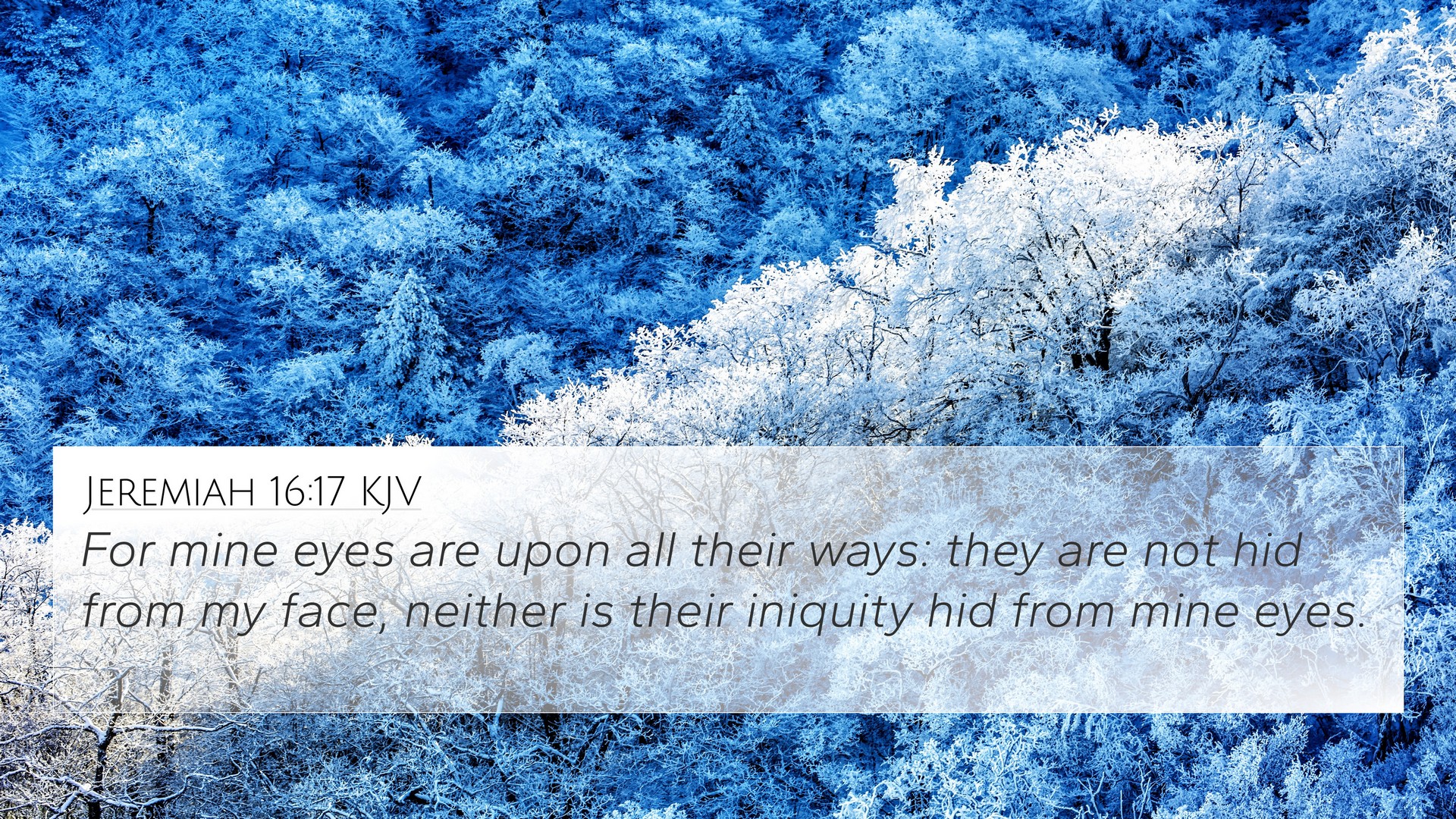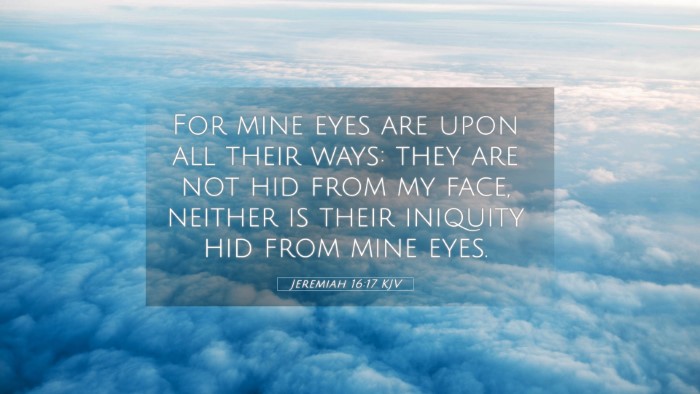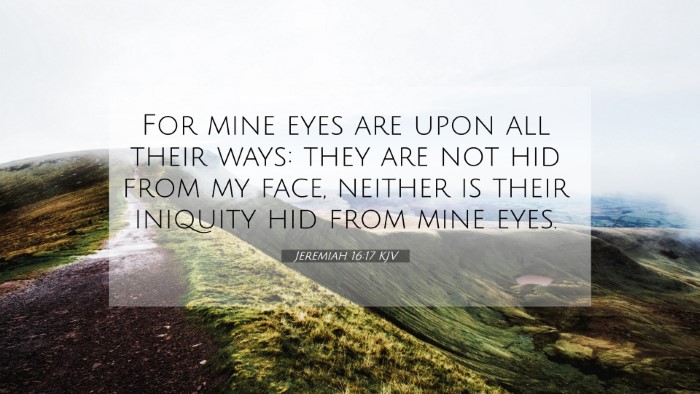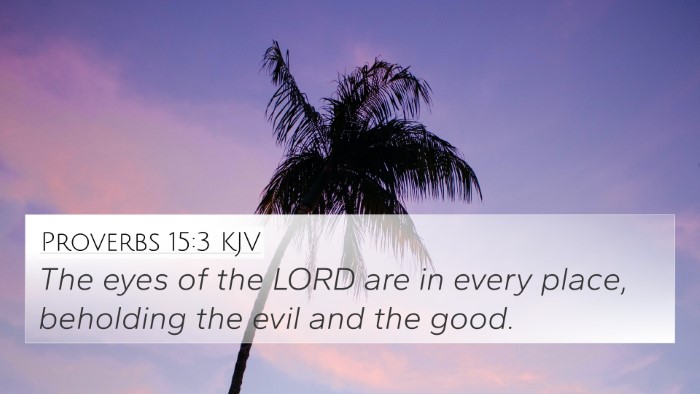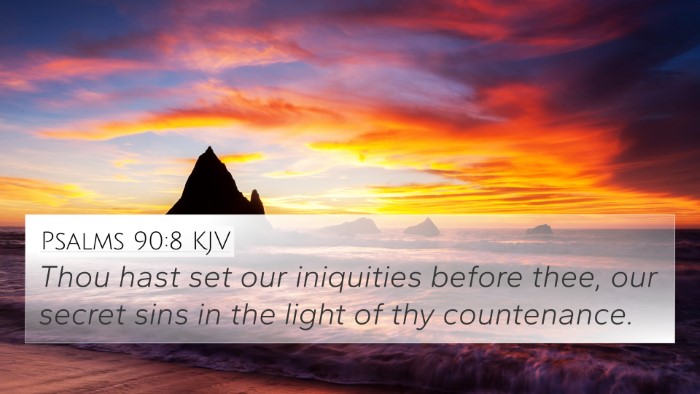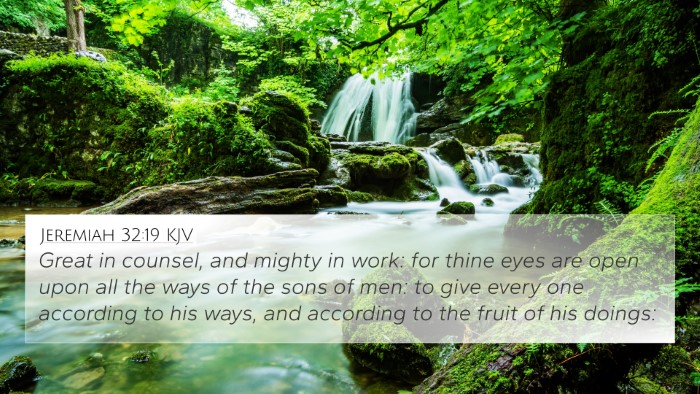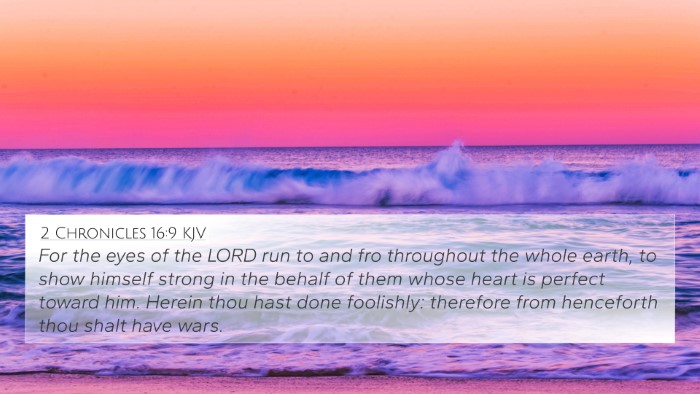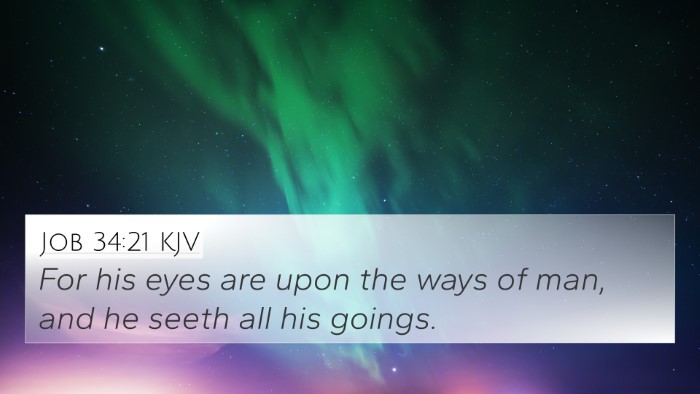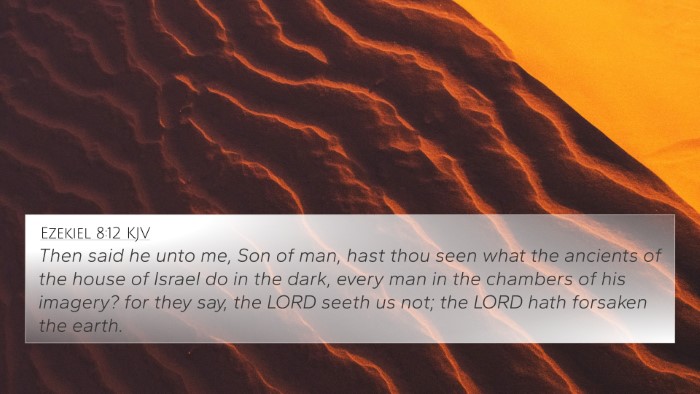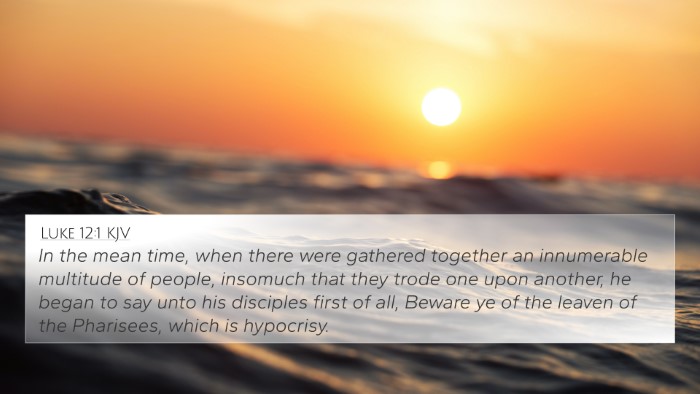Understanding Jeremiah 16:17
Jeremiah 16:17 states, "For my eyes are on all their ways; they are not hidden from my face, nor is their iniquity concealed from my eyes." This verse emphasizes God’s omniscience and attentiveness to the actions of His people.
Meaning and Explanation
This verse highlights several key themes about God’s nature and His relationship with mankind as derived from public domain commentaries:
-
Divine Awareness:
According to Matthew Henry, the phrase "my eyes are on all their ways" signifies God's complete knowledge and observation of human actions. Nothing escapes His sight.
-
Iniquity Recognition:
Albert Barnes elaborates on the idea that God is aware of iniquity. Sin cannot be concealed, and God's judgment on sinful behavior is inevitable, reflecting His justice.
-
Personal Relationship:
Adam Clarke points out that God's 'face' represents His personal attention. This indicates that God is not a distant observer; rather, He is intimately involved in human affairs.
Cross References
To better understand the implications of Jeremiah 16:17, here are some relevant cross-references that illuminate its themes:
- Proverbs 15:3: "The eyes of the Lord are in every place, keeping watch on the evil and the good." This verse complements the idea of God's omniscience.
- Psalms 139:7-10: "Where shall I go from your Spirit? Or where shall I flee from your presence?" This passage reinforces the concept that one cannot hide from God.
- Hebrews 4:13: "And no creature is hidden from his sight, but all are naked and exposed to the eyes of him to whom we must give account." It speaks to divine accountability and scrutiny.
- Amos 9:8: "Behold, the eyes of the Lord God are upon the sinful kingdom." This emphasizes God's watchful care over nations and people.
- Job 34:21: "For his eyes are on the ways of a man, and he sees all his steps." This verse mirrors the concept of divine observation and morality.
- Matthew 12:36: "I tell you, on the day of judgment people will give account for every careless word they speak." This points to the accountability of human actions before God.
- Galatians 6:7: "Do not be deceived: God is not mocked, for whatever one sows, that will he also reap." This verse alerts individuals to the consequences of their actions.
Thematic Connections
Exploring thematic Bible verse connections can facilitate a deeper understanding of biblical narratives. This includes examining how various scriptures interrelate and support the overarching message of accountability and divine gaze in Jeremiah 16:17.
Tools for Bible Cross-Referencing
Utilizing tools for Bible cross-referencing, such as a Bible concordance or cross-reference guide, can enhance your study of interrelated themes and verses. By employing these tools, one can identify connections between Old and New Testament scriptures effectively.
Conclusion
Jeremiah 16:17 serves as a powerful reminder of God's omnipresence and the certainty of divine judgment upon human actions. The connections established through scripture not only enrich our understanding of this verse but also allow for a comprehensive Bible study experience. Engaging in comparative Bible verse analysis and utilizing cross-reference methods can significantly aid in biblically grounded sermon preparation and personal study.
This verse invites believers to reflect upon their ways and to understand that God is always watching, inspiring a call to live righteously under His gaze.
